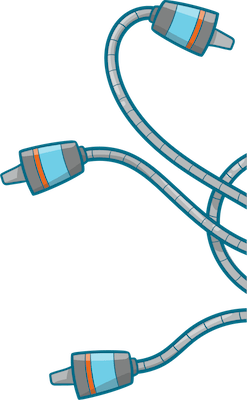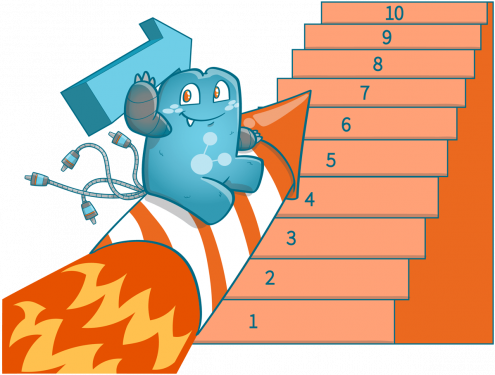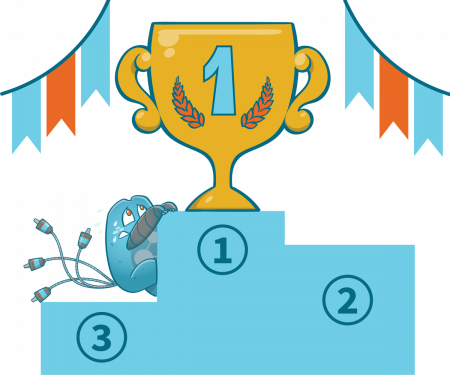Types of eCommerce Links – Top Differences and Best Effects on SEO

Like other websites, an eCommerce site also needs links to help improve its SEO health. Read on to know the importance of eCommerce links and how they can affect your business’s success.
eCommerce Links: Do They Matter?
An Overview on eCommerce Businesses
In recent years, the use of inbound and internal eCommerce links to increase sales and return customers has become more common.
When running an eCommerce website, your primary goal is to drive high-quality links and organic traffic to your product/service pages. Once a potential buyer sees those pages, you can expect to convert them by completing a purchase. That is why it is essential to create valuable content and effective link-building strategies when running an eCom business.
Link-building strategies, combined with proper marketing strategies like working with your partners to showcase your products on their blogs or online publications and offering high-quality content to your audience, can help drive more sales to your eCom site.
Most successful eCom businesses out there don’t simply send out emails or messages that say, “my product is the best; buy it.” Rather, they combine different types of business strategies with SEO strategies (internal and external linking, quality content, enhanced UX, etc.) to get ahead of their competitors.
Links and E-Commerce Businesses: What’s the Link?
There are two types of links that can be found on most, if not all, websites on the web: external and internal links. Web admins use these two to connect their site to other websites (external links) or link pages within their website (internal links). Links can be placed not only on text but also on images, videos, and any other elements in a website.
So, you might be asking the question, “what are links that connect to my website then?”
Whenever you link to another location on the web, that can be considered as an external link (outbound link) to that site. However, if another site links to your site, you can assume that link as a backlink (inbound link) to your site.
Remember, these types of links are essential for your eCommerce business since they have their own benefits. Read on to know to get an idea of why you should include link-building into your strategies.

Internal Links and eCommerce Sites
Internal eCommerce links can help you retain the interest of your visitors by providing them with other options on a page. This can be through related blog posts, posts describing the product they are about to buy or similar items that other people also bought. Basically, internal links help visitors get to know more about a thing and what add-ons are perfect for it.
External Links, Backlinks, and eCommerce Sites
This type of link is beneficial for your site in a different way. Through external eCommerce links, you can build a more extensive network with eCom business owners that aids in giving out links to other websites.
To explain this further, here is an example: Suppose you own a flower company. If you are partnered with a website that offers wedding services, and you usually make external links to them, they could return the favor and link your site to one of their blogs and say that your shop is a great place to get flowers for weddings. Once they link back to you, that can be considered as a backlink.
Aside from a greater online presence, you could also get high-quality links, especially if your partner’s website is quite authoritative in their industry. This means that they can pass on some of their authority (link juice) to your website.
Links in a Website
When we go deeper into external and internal links, there are more specific classifications of eCommerce links in a website—backlinks, natural links, manually obtained links, and self-created links.
- Backlinks
Backlinks, also known as inbound links, are links created by another website to connect to one of your pages. So, the more backlinks your site receives, the more that Google will recognize its relevance, usefulness, and importance in your industry.
However, you should remember that not all backlinks give value to your site and contribute to your SERP ranking. That is why you should always look for backlinks that come from top-ranking pages that are related to your content to ensure that you’re getting the most out of these backlinks.
- Natural Links
Natural links are links coming from websites without you asking for them. Receiving natural links can indicate that you have essential and helpful information that their visitors can use. If your site has many natural links, then it means that your content is too good that website owners are willing to show them off even without something in return for it.
Getting natural links also means that your eCommerce site’s online presence is more significant than the others in your industry since other websites choose to link you instead of others.
- Manually Obtained Links
A manually obtained link is the opposite of a natural link. This type of link is obtained “manually” through your efforts. In getting this type of link, you’d have to use some of your time and energy to contact other webmasters and bloggers to link your website or feature your products, services, or other pages.
Manually obtaining links is a common link-building technique that medium and small businesses use to increase their presence in their industry. Asking websites to feature your content sounds easy enough to do. However, it isn’t. Most site owners or bloggers won’t readily link to your site since featuring another website will directly affect one’s website and the other.
When planning to ask for links, you should ensure that your content is worth sharing and featuring so that businesses and bloggers won’t think twice about doing so. Also, when getting manual links, the website you’re picking should be relevant to your content. Otherwise, it won’t provide much impact (authority and value) to your website.
- Self-Created Links
Among the links discussed, a self-created link is the only one that does not matter for SEO. Website owners often create self-created links to trick search engines that their content is linked by another website (making their content look relevant and important).
The use of self-created links is an example of bad linking since the owner uses it to increase his website’s value by fooling a search engine. To do this, website owners add backlinks on forums or blog comments related to their website.
Anchor Texts to eCommerce Links
If you think you could simply get all keywords and fill them with eCommerce links to increase your website’s SEO health, you’re up for something terrible.
Picking the right keywords for your anchor texts is just as important as selecting the nature of your eCommerce links. Placing anchor words all over your content can signal Google that you are spamming keywords (keyword stuffing). So, to prevent this, you should have a proper strategy on how to pick the right anchor words.
Here are some tips to help you pick the right anchor words for your content:
- Download Your Organic Keyword Report from Google Analytics
Make sure you only look at organic traffic.
- Remove Insignificant Keywords
Delete any data that can’t be considered significant for your site.
- Remove Poorly Converting Keywords
Don’t pick words that convert below your average conversion rate.
- Maximize Your Use of Keyword Difficulty Scores and Search Volumes
These two aspects are essential so that you’d know how difficult it would be to rank for a keyword and the number of searches for the keywords you’ve chosen.
- Get ranking data and pair it with the appropriate keywords
Picking the top 15 (removing keywords you already rank well in) will most likely give you the highest ROI on your link-building efforts.
- Prioritize link-building efforts
Put keywords with high conversion rates in your list of anchors to use in link building. You could also pick keywords with a low Keyword Difficulty.
We know that link-building is a pretty confusing and challenging task. Get more information at Internal Link Juicer.
What Makes a Good Link?
A good link is a type of link that gives your website authority and value. We know that every website is unique; that is why the impact that their eCommerce links provide your website also varies. The trick to getting good backlinks is by determining if a website is high-quality. Here is a checklist to determine if a website is a perfect fit for your pages:
- Check if the site is a niche
- It doesn’t link to illegal, adult, or scam sites
- Advertisements don’t contain prices or mentions of paid text links or backlinks.
- You can easily locate the site in Google’s news feed. This means that Google sees them as trustworthy and high-quality.
- Their links come from the content and not from blog comments, forums, mentions, press releases, or other areas where anyone can quickly create or buy links.
eCommerce Links are vital to your eCommerce site’s success. That is why it is essential to pick the right websites to get eCommerce links from or send outbound links for SEO. Get our latest plug-in that can assist you in your link-building efforts.






